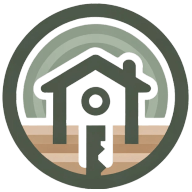In the world of home financing, the decision between adjustable and fixed-rate mortgages can be daunting. This post aims to shed light on the key differences between these two mortgage types, helping you make an informed decision that suits your financial situation and future plans.
Understanding Adjustable-Rate Mortgages
Adjustable-rate mortgages (ARMs) come with interest rates that fluctuate over time. These rates are typically tied to a specific financial index and can rise or fall based on market conditions. Initially, ARMs often offer lower interest rates than their fixed-rate counterparts, making them an attractive option for many homebuyers.
However, the variable nature of ARMs also means that your monthly payments can change over time. If interest rates rise, so too will your mortgage payments. Conversely, if rates fall, you could end up paying less each month. This uncertainty can make budgeting more challenging, particularly for those with tight financial constraints.
Despite this, ARMs can be a good choice for certain homebuyers. If you plan to sell your home before the rate adjusts, for example, you could benefit from the lower initial interest rate without worrying about potential rate increases in the future. Similarly, if you expect your income to rise in the future, you might be able to handle higher payments if rates increase.
Delving into Fixed-Rate Mortgages
Unlike ARMs, fixed-rate mortgages have interest rates that remain constant for the life of the loan. This stability means your monthly payments will stay the same, making it easier to budget for your mortgage.
Fixed-rate mortgages can be particularly beneficial for those who plan to stay in their home for a long time. With a fixed-rate mortgage, you don't have to worry about potential interest rate increases impacting your monthly payments. This can provide peace of mind, particularly in times of economic uncertainty.
However, fixed-rate mortgages often start with higher interest rates than ARMs. This means you could end up paying more in interest over the life of the loan if rates remain relatively stable or decrease over time. Despite this, many homebuyers appreciate the predictability that fixed-rate mortgages offer.
Evaluating Your Financial Situation
When choosing between an adjustable and fixed-rate mortgage, it's essential to consider your financial situation. If you're working with a tight budget, the predictability of a fixed-rate mortgage might be more appealing. On the other hand, if you have some flexibility in your budget, you might be willing to take on the risk of an ARM in exchange for a lower initial interest rate.
Your future income prospects should also play a role in your decision. If you expect your income to increase significantly in the future, you might be more comfortable taking on an ARM. However, if your income is likely to remain stable, a fixed-rate mortgage might be a safer bet.
Considering Your Long-Term Plans
Your long-term plans should also influence your mortgage decision. If you plan to stay in your home for many years, a fixed-rate mortgage can provide stability and predictability. However, if you plan to move within a few years, an ARM could potentially save you money.
Remember, though, that plans can change. Life can throw unexpected curveballs, and what seems like a good idea now might not be in the future. Therefore, it's important to consider all possibilities and make a decision that offers the best balance of risk and reward for your specific situation.
Seeking Professional Advice
While this post provides a general overview of adjustable and fixed-rate mortgages, it's always a good idea to seek professional advice when making such a significant financial decision. A mortgage broker or financial advisor can provide personalized advice based on your specific circumstances.
They can help you understand the potential risks and rewards of each mortgage type, taking into account factors like your income, expenses, future plans, and risk tolerance. With their help, you can make a more informed decision and feel confident that you're choosing the mortgage that's right for you.
Making the Final Decision
Ultimately, the decision between an adjustable and fixed-rate mortgage is a personal one. It depends on your financial situation, future plans, and comfort with risk. By understanding the key differences between these two mortgage types, evaluating your financial situation and long-term plans, and seeking professional advice, you can make a decision that suits your needs and helps you achieve your homeownership goals.
Wrapping Up: Adjustable vs Fixed-Rate Mortgages
The journey to homeownership is filled with important decisions, and choosing between an adjustable and fixed-rate mortgage is one of the most significant. By taking the time to understand your options and evaluate your personal situation, you can make a decision that sets you up for financial success. Whether you choose an adjustable or fixed-rate mortgage, the key is to make an informed decision that aligns with your financial goals and homeownership dreams.

